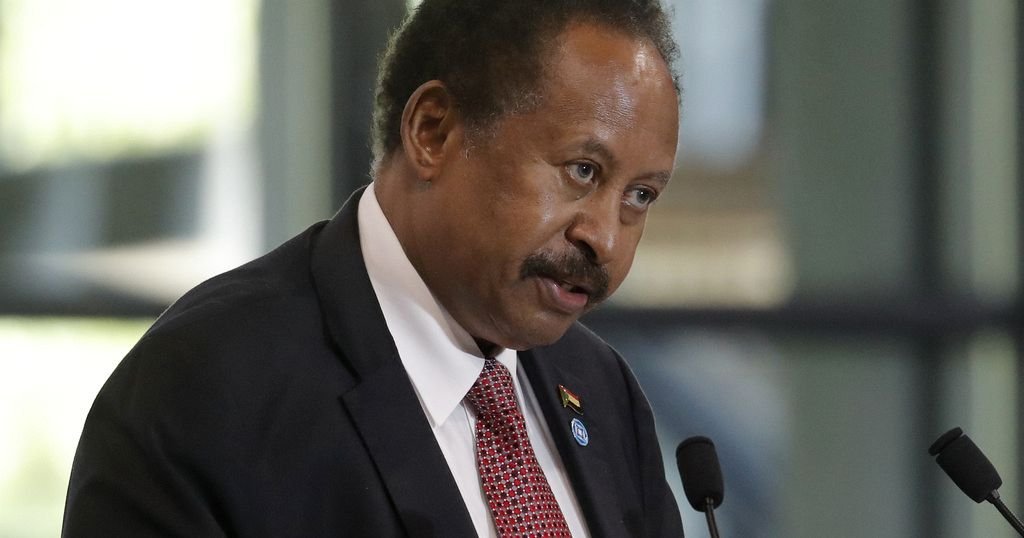Africa
Sudan: Hamdok not convinced by the new Prime Minister

Sudan’s former prime minister on Wednesday called the military’s moves to form a new government “false ,” saying its recent victories in retaking the capital Khartoum and other territories will not end the country’s two-year civil war.
In a rare interview with The Associated Press, Abdalla Hamdok said no military victory, in Khartoum or elsewhere, could end the war that has killed tens of thousands of people and driven millions more from their homes.
“Whether Khartoum is captured or not is irrelevant,” Hamdok said on the sidelines of a governance conference organized by the Mo Ibrahim Foundation in Morocco . “There is no military solution to this problem. Neither side will be able to achieve absolute victory.”
In 2019, Mr. Hamdok became Sudan ‘s first civilian prime minister after decades of military rule, attempting to lead a democratic transition . He resigned in January 2022 after a turbulent period in which he was ousted in a coup and briefly reinstated under international pressure.
Civil war
The following year, warring generals plunged the country into civil war . Today, Sudan has a grim reputation for being home to some of the world’s worst humanitarian crises.
Fighting between the army and paramilitary Rapid Support Forces has left at least 24,000 people dead, but many believe the true death toll is much higher. Both sides are accused of war crimes.
The RSF, which has its roots in Darfur’s notorious Janjaweed militia, has been accused of committing genocide . The army is accused of using chemical weapons and targeting civilians where they live.
The war has driven approximately 13 million people from their homes, 4 million of whom have fled to neighboring countries. Famine is setting in and cholera is rampant.
The army recaptured the Khartoum region from the RSF in March, along with some surrounding areas. Army chief General Abdel-Fattah Burhan hailed the gains as a major turning point in the conflict.
Last month, he appointed a new prime minister, Kamil al-Taib Idris , for the first time since the start of the war, tasked with forming a new government. But fighting continues. The RSF has regrouped in its Darfur stronghold and made gains elsewhere, notably in Kordofan .
Lasting peace
Mr. Hamdok, a 69-year-old former economist who now leads a civilian coalition from exile, called the idea that the conflict would ease off “complete nonsense .” The idea that reconstruction could begin in Khartoum while fighting rages elsewhere is “absolutely ridiculous,” he said.
“Any attempt to create a government in Sudan today is wrong. It is irrelevant ,” he said, asserting that lasting peace cannot be achieved without addressing the root causes of the war.
Mr. Hamdok said a ceasefire and a credible process to restore democratic, civilian rule should address Sudan’s deep inequalities, including uneven development, problems between different identity groups , and questions about the role of religion in government. “Trusting soldiers to establish democracy is a pretext ,” he added.
Although rooted in long-standing divisions, the war has been exacerbated by foreign powers accused of arming both sides.
Pro-democracy groups, including Hamdok’s Somoud coalition, have condemned the atrocities committed by the army and the RSF. However, Hamdok has avoided accusing the UAE of supplying weapons to the RSF, despite international scrutiny and an investigation by a UN panel of experts.
On Wednesday, he brushed off AP questions about weapons from the UAE. He said those who pointed the finger at the Gulf state while ignoring other countries accused of supporting the military, including Iran, were “pushing a narrative . “
“What we would like to see is that all those who supply weapons to either side stop doing so ,” he said.
